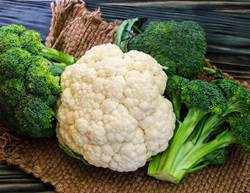Tea has been a staple across cultures for centuries—and for good reason. As a dietitian, I’ve often found that many people underestimate just how powerful tea can be. Beyond its soothing qualities, tea may support overall health in ways you might not expect. Whether you’re a lifelong tea drinker or just starting to explore its benefits, there’s plenty to discover about this simple yet versatile drink.
But before we dig in, it’s important to note that not all teas are the same. What many people call “tea” actually falls into two categories: true tea and herbal tea. True tea comes from the Camellia sinensis plant and includes varieties like green, black, white and oolong tea. Herbal teas, on the other hand, are made from infusions of herbs, flowers, fruits or spices—without tea leaves. While herbal teas have their own unique benefits, this guide focuses on true tea and its standout qualities.
Tea nutrition facts
According to the Australian Food Composition Database, a cup of black tea brewed without milk contains approximately:
- Energy: 2 kilojoules (kJ)
- Protein: 0.1 grams
- Fat: 0.1 grams
- Carbohydrate: 0.4 grams
- Sodium: 10 milligrams
- Potassium: 43 milligrams
Benefits of true tea
Tea has been enjoyed for centuries, not just for its warmth and variety of flavours, but for its remarkable health benefits. Science is now backing up what ancient cultures have long believed: true tea can do wonders for your body and mind. Here’s why adding tea to your daily routine may be a smart move.
Rich in antioxidants
Tea is rich in antioxidants, particularly polyphenols, which help protect your cells from free radical damage. Free radicals are unstable molecules that may contribute to ageing and chronic diseases. Green tea is especially high in catechins, a type of antioxidant known for its powerful health benefits. Regular tea consumption may help reduce oxidative stress and promote overall wellbeing.
Supports heart health
Drinking tea has been linked to better cardiovascular health. Research suggests that certain teas—particularly green tea—may help lower LDL (“bad”) cholesterol and improve circulation. The flavonoids in tea may also reduce the risk of heart disease and stroke over time. A study published in the European Journal of Preventative Cardiology found that habitual tea drinkers had a 20% lower risk of cardiovascular events compared to non-tea drinkers. However, more research is needed to confirm these findings.
Supports mental alertness and relaxation
Tea provides a balanced boost for the brain. With a moderate dose of caffeine, it can improve focus and mental alertness—without the jittery side effects of coffee. It also contains L-theanine, an amino acid that promotes relaxation, supports a healthy mood and may reduce stress and anxiety-like symptoms. This combination of calm yet focused energy is why tea is a go-to drink for many looking for a productive, soothing pick-me-up.
May reduce certain cancer risk
The polyphenols in tea, particularly the catechins in green tea, may help reduce the risk of certain cancers, including breast cancer. Antioxidants in tea are thought to neutralise free radicals and lower oxidative stress, which may play a role in cancer development.
Black tea, which goes through a different oxidation process than green tea, contains unique compounds that may support cancer prevention. Some studies suggest that black tea consumption is linked to a reduced risk of skin, lung and prostate cancers, but further research is needed.
Boosts hydration
Since tea is mostly water, every sip contributes to hydration. Both herbal and true teas can help increase daily fluid intake. Tea is also a great low-calorie alternative to soft drinks, making it a smart choice for those cutting back on added sugars.
Potential side effects of true tea
While tea offers many health benefits, it’s not without potential drawbacks. Here are some side effects to keep in mind:
Caffeine sensitivity
True tea contains caffeine, though typically less than coffee. For some people, even moderate amounts of caffeine can lead to insomnia, jitters or an upset stomach. To minimise these effects, pay attention to how your body responds and opt for lower-caffeine teas like white tea if needed. If you can’t go without tea (and we don’t blame you), try limiting it to the morning, switching to decaf later in the day or opting for herbal varieties.
Interference with nutrient absorption
Iron and calcium absorption in the human body may be influenced by various dietary factors, and tea is one that may interfere with these processes. Tea contains tannins—compounds that can bind to non-haem iron (the type found in plant-based foods)—and may reduce its absorption. While this effect is generally mild, those with iron deficiency or conditions requiring high iron levels should consider moderating their tea intake, especially during or right after meals. Similarly, tea contains oxalates, which may bind to calcium and impact absorption. If you rely on plant-based iron sources or need high calcium intake, it’s worth being mindful of timing when drinking tea.
Benefits of herbal tea
Herbal teas, while often grouped under the term “tea,” are technically not true teas. Despite this, they may offer a variety of health benefits depending on their ingredients.
Here are some of the potential perks of popular herbal teas:
- Hibiscus Tea - Known for its vibrant colour and tangy flavour, hibiscus tea may help lower blood pressure and support heart health. It’s also a source of vitamin C and antioxidants.
- Peppermint Tea - Often used to soothe digestive discomfort, peppermint tea may also help relieve headaches and improve focus due to its refreshing aroma.
- Lavender Tea - Valued for its calming properties, lavender tea may help reduce stress, improve sleep and promote relaxation.
- Chamomile Tea - Known for its soothing qualities, chamomile tea promotes relaxation and supports better sleep.
- Ginger Tea - Renowned for its medicinal qualities, ginger tea may help alleviate nausea and support digestion.
- Rooibos Tea - Packed with antioxidants, rooibos tea promotes overall health and may support heart health while helping to regulate blood sugar levels.
Teas to avoid
While true tea has a lot to offer, not all tea products are created equal. Here are some teas you might want to steer clear of:
Sugar-laden bottled teas
Many bottled teas are loaded with added sugars, which can cancel out the health benefits of tea. A single bottle might contain as much sugar as a can of soft drink! Instead, brew your tea at home and add a splash of honey or a squeeze of lemon if you need a bit of sweetness.
Artificially flavoured tea mixes
Powders and tea concentrates often contain artificial flavours, preservatives and sweeteners. These may diminish the natural health properties of tea and add unnecessary calories or chemicals to your beverage.
If you want the most health benefits from your tea, stick to high-quality loose leaves or minimally processed tea bags with no added ingredients.
The bottom line
Tea blends tradition, enjoyment and health benefits into a single cup. Whether you’re sipping it to relax, boost your focus or simply stay hydrated, true tea has a lot to offer. With its antioxidants, heart-health benefits and potential support for overall wellbeing, tea makes an excellent addition to almost anyone’s daily routine. Brew a fresh, warm cup today and savour the many rewards of this timeless drink!










